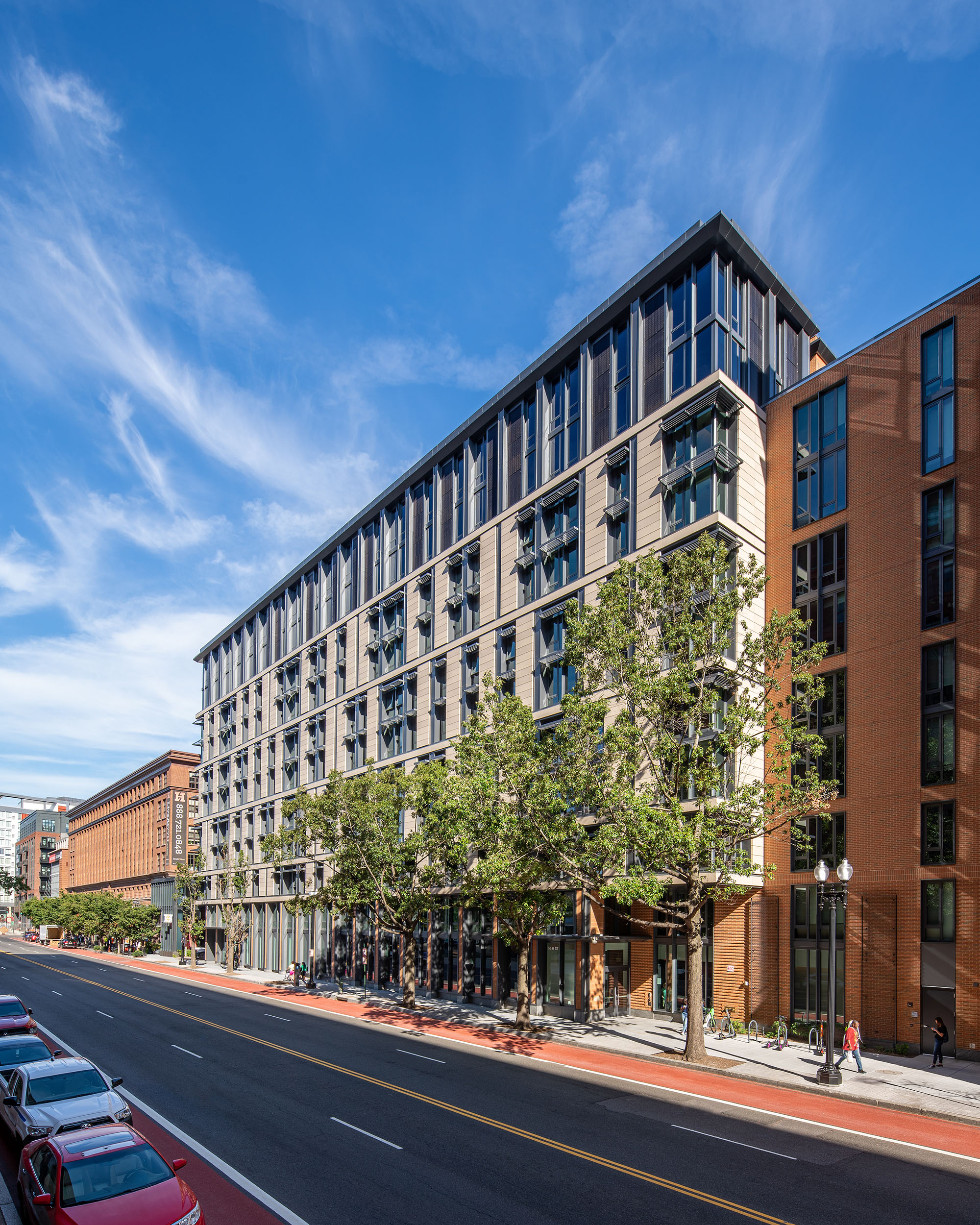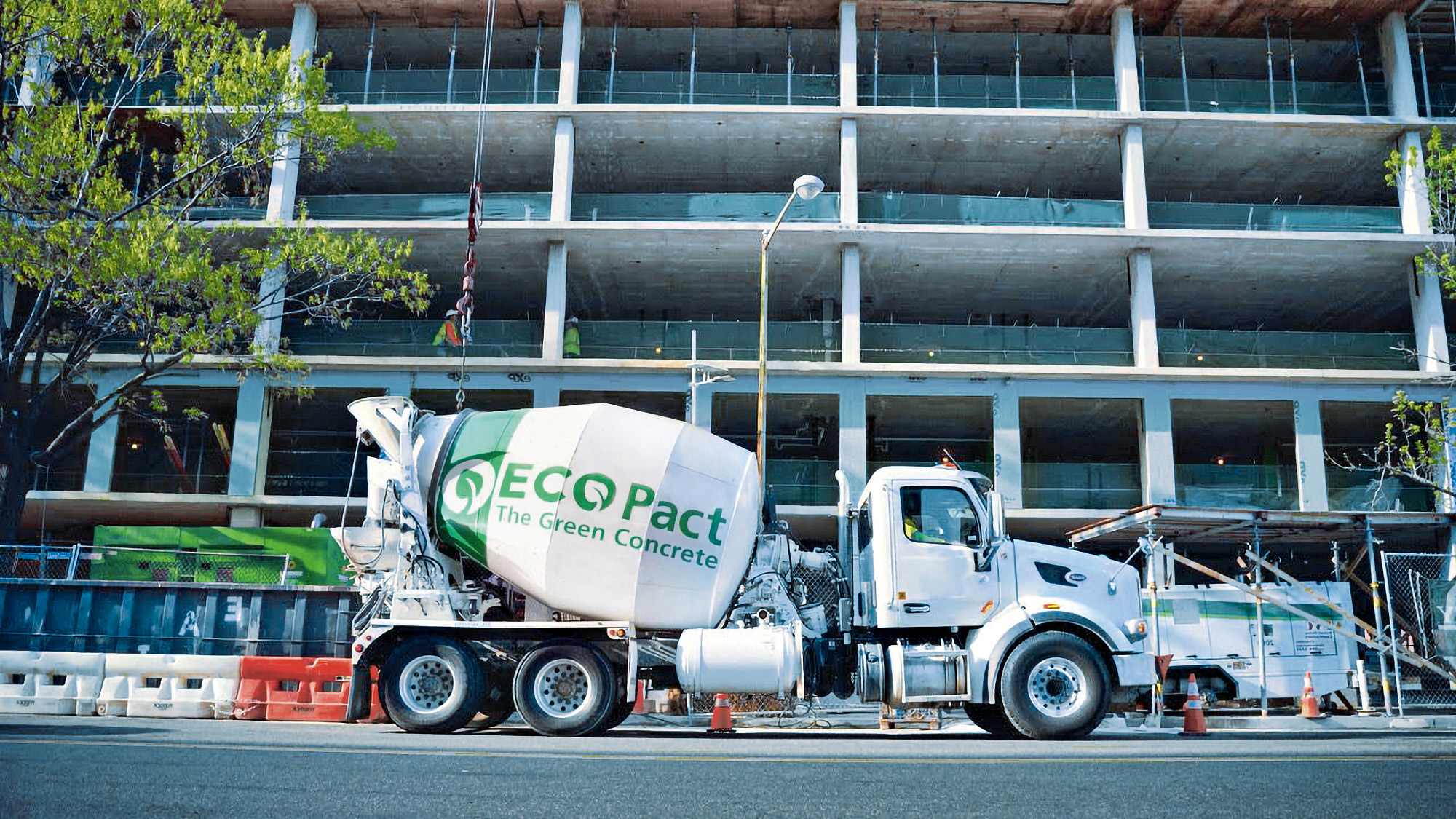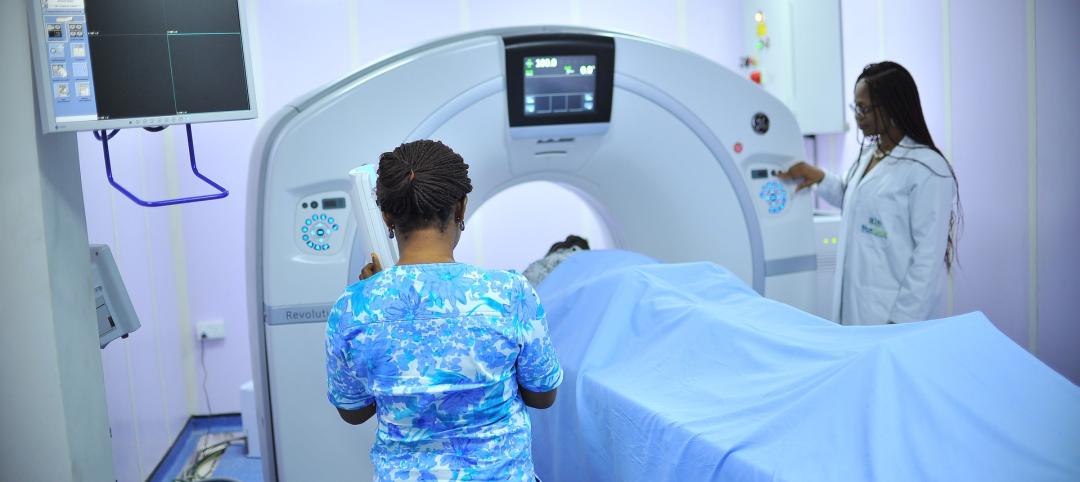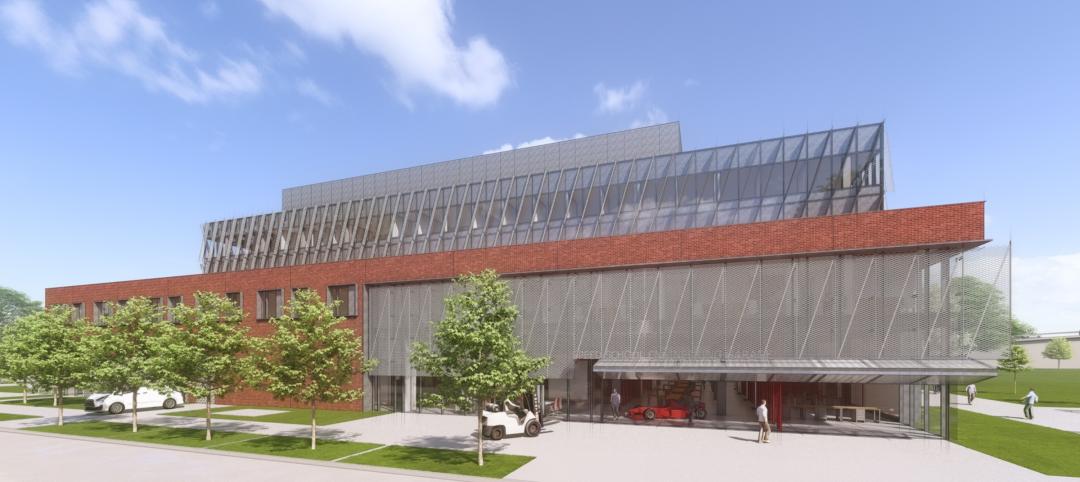Months ago we heard news of the “nation’s first carbon-positive hotel”—a 13-floor, 130-000-sf cement tower with a triangular layout and eye-shaped windows. Populus, designed by Studio Gang and developed by Urban Villages, broke ground in Denver, Colo., last year with plans to be operational by summer 2024. What makes Populus a carbon-positive project is a collection of variables, from minimizing waste to using fewer finish materials. But there’s one huge driver behind the green initiative: sustainable concrete.
ECOPact is an optimized, low-carbon concrete made from large amounts of supplementary cementitious materials (SCM). With lower embodied carbon content compared to conventional concrete, ECOPact aims to be an attractive alternative for sustainability-driven engineers.
Sustainable concrete: ECOPact
Designed by Holcim, a sustainable building materials supplier, ECOPact offers a low-carbon alternative that not only meets, but exceeds the properties of standard (CEM I) concrete. This allows the material to be used in all traditional applications: structural components like foundations, columns and beams; to walls, driveways, bridges, and more.

ECOPact Tiers
Rather than having a one-size-fits-all product, Holcim delivers ECOPact in a three-tiered system:
- ECOPact (30–50% reduction in carbon emissions)
- ECOPact Prime (50–70% reduction)
- ECOPACT Max (70–90% reduction)
Each tier can be enhanced with the addition of recycled concrete aggregates ECOPact+ range, according to the company. Kevin Peart, Senior Vice President and General Manager of the Mountain Region, Holcim, believes that Holcim has become “one of the first movers in the concrete industry.”
For the Populus hotel, this sustainable concrete was integral to the design process. The project’s utilization of ECOPact accounts for 65% of the total cubic yards of concrete poured, with an anticipated reduction of 765 tons in the concrete's embodied carbon compared to traditional concrete.

A similar story is told at 55 H Street, a Georgetown University residence hall (above). The project team had a specific challenge: they needed a concrete blend capable of attaining a 28-day design strength of 5,000 psi, while also achieving a high-early strength of 3,000 psi within a span of two to three days. ECOPact delivered, and 55 H Street became “one of the most sustainable buildings in D.C.,” says Zachary Lovett, Project Pursuit Manager, Holcim.
As the built environment continues to find ways to reduce its impact on the planet, innovative materials like ECOPact may help drive the change that architects, engineers, and contractors desire.
Related Stories
Healthcare Facilities | Jul 22, 2024
5 healthcare building sector trends for 2024-2025
Interactive patient care systems and trauma-informed design are among two emerging trends in the U.S. healthcare building sector, according to BD+C's 2024 Healthcare Annual Report (free download; short registration required).
Office Buildings | Jul 22, 2024
U.S. commercial foreclosures increased 48% in June from last year
The commercial building sector continues to be under financial pressure as foreclosures nationwide increased 48% in June compared to June 2023, according to ATTOM, a real estate data analysis firm.
Codes and Standards | Jul 22, 2024
Tennessee developers can now hire their own building safety inspectors
A new law in Tennessee allows developers to hire their own building inspectors to check for environmental, safety, and construction violations. The law is intended to streamline the building process, particularly in rapidly growing communities.
Codes and Standards | Jul 22, 2024
New FEMA rules include climate change impacts
FEMA’s new rules governing rebuilding after disasters will take into account the impacts of climate change on future flood risk. For decades, the agency has followed a 100-year floodplain standard—an area that has a 1% chance of flooding in a given year.
Healthcare Facilities | Jul 18, 2024
Why decarbonizing hospitals smartly is better than electrification for healthcare design
Driven by new laws, regulations, tariffs, ESG goals, and thought leaders in the industry itself, healthcare institutions are embracing decarbonization to meet 2050 goals for emissions reductions.
Construction Costs | Jul 18, 2024
Data center construction costs for 2024
Gordian’s data features more than 100 building models, including computer data centers. These localized models allow architects, engineers, and other preconstruction professionals to quickly and accurately create conceptual estimates for future builds. This table shows a five-year view of costs per square foot for one-story computer data centers.
Sustainability | Jul 18, 2024
Grimshaw launches free online tool to help accelerate decarbonization of buildings
Minoro, an online platform to help accelerate the decarbonization of buildings, was recently launched by architecture firm Grimshaw, in collaboration with more than 20 supporting organizations including World Business Council for Sustainable Development (WBCSD), RIBA, Architecture 2030, the World Green Building Council (WorldGBC) and several national Green Building Councils from across the globe.
University Buildings | Jul 17, 2024
University of Louisville Student Success Building will be new heart of engineering program
A new Student Success Building will serve as the heart of the newly designed University of Louisville’s J.B. Speed School of Engineering. The 115,000-sf structure will greatly increase lab space and consolidate student services to one location.
Healthcare Facilities | Jul 16, 2024
Watch on-demand: Key Trends in the Healthcare Facilities Market for 2024-2025
Join the Building Design+Construction editorial team for this on-demand webinar on key trends, innovations, and opportunities in the $65 billion U.S. healthcare buildings market. A panel of healthcare design and construction experts present their latest projects, trends, innovations, opportunities, and data/research on key healthcare facilities sub-sectors. A 2024-2025 U.S. healthcare facilities market outlook is also presented.
K-12 Schools | Jul 15, 2024
A Cleveland suburb opens a $31.7 million new middle school and renovated high school
Accommodating 1,283 students in grades 6-12, the Warrensville, Ohio school complex features flexible learning environments and offers programs ranging from culinary arts and firefighting training to e-sports.

















